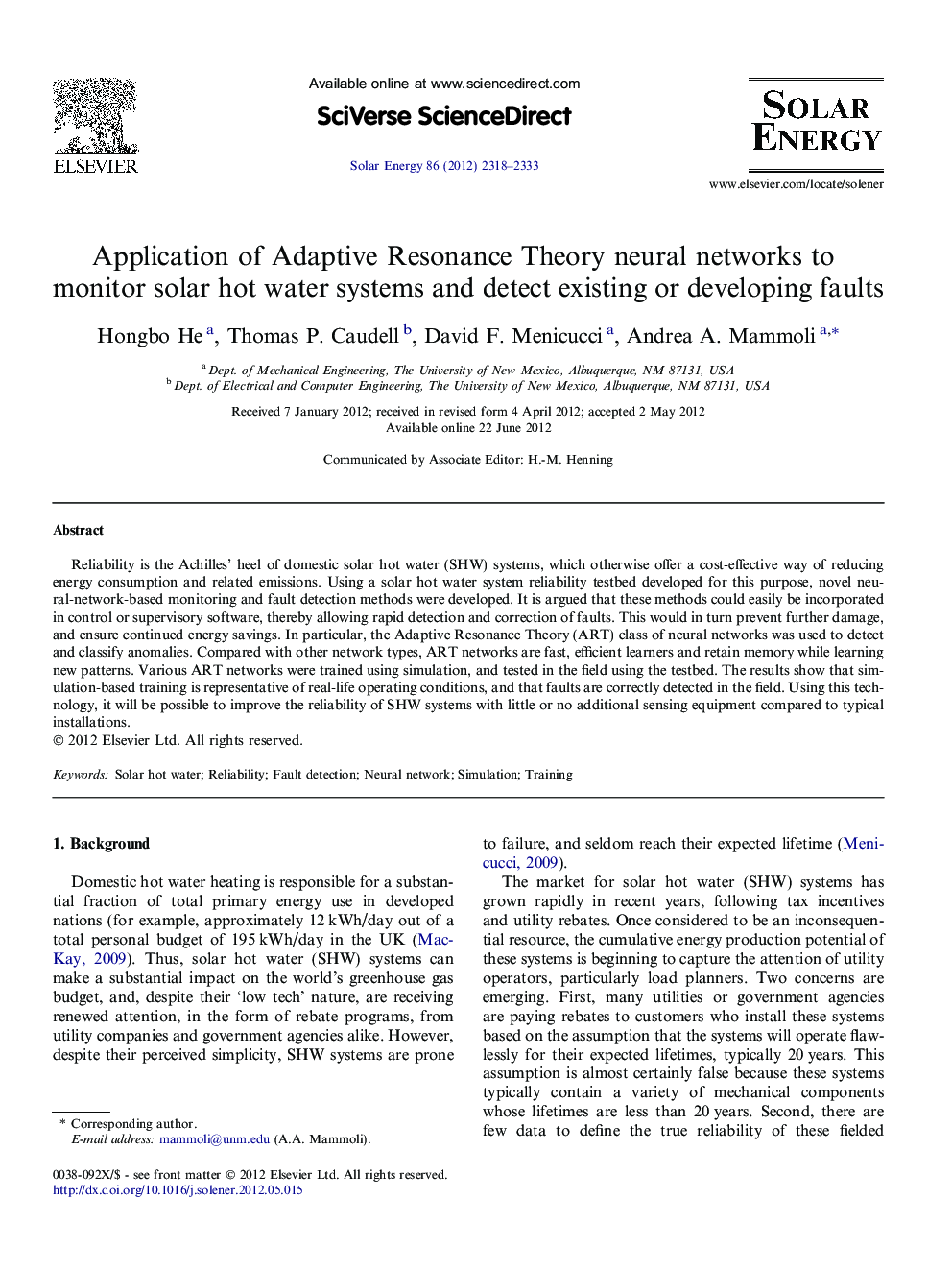| Article ID | Journal | Published Year | Pages | File Type |
|---|---|---|---|---|
| 1550885 | Solar Energy | 2012 | 16 Pages |
Reliability is the Achilles’ heel of domestic solar hot water (SHW) systems, which otherwise offer a cost-effective way of reducing energy consumption and related emissions. Using a solar hot water system reliability testbed developed for this purpose, novel neural-network-based monitoring and fault detection methods were developed. It is argued that these methods could easily be incorporated in control or supervisory software, thereby allowing rapid detection and correction of faults. This would in turn prevent further damage, and ensure continued energy savings. In particular, the Adaptive Resonance Theory (ART) class of neural networks was used to detect and classify anomalies. Compared with other network types, ART networks are fast, efficient learners and retain memory while learning new patterns. Various ART networks were trained using simulation, and tested in the field using the testbed. The results show that simulation-based training is representative of real-life operating conditions, and that faults are correctly detected in the field. Using this technology, it will be possible to improve the reliability of SHW systems with little or no additional sensing equipment compared to typical installations.
► Neural networks can be used to detect anomaly in solar hot water system operation. ► Simulation-based learning removes the need for long-term field training. ► The cost of the system is minimal, consisting almost entirely of software. ► The system can reliably distinguish between normal solar variability and faults.
